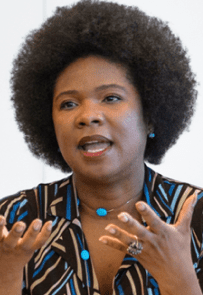Details
Article
This program booklet is comprised of the Fellows’ individual and collective reflections on their experience of exploration and transformation during the John Lewis Fellowship and how the experience will inform their engagement in the advancement of civil and human rights in their communities and countries.
The 2018 John Lewis Fellowship was centered on an exploration of contemporary challenges facing and opportunities available to the City of Atlanta and it drew upon themes developed in the first three years of the Fellowship program. This summer the program engaged the past as prologue, comparing and contrasting politics, social issues and events from 50 years ago, with the perspective hindsight affords, and Fellows examined challenges inherent in both Atlanta’s rich and complex past and in its promising and dynamic future.
A focal point of the program for all four years has been the 1960’s Appeal for Human Rights, authored by Dr. Roslyn Pope, which serves as both a list of demands that capture the form and substance of human rights entitlements and as a manifesto advancing a progressive agenda marked by inclusion and modes of empowerment. This historic document spawned a movement for human and civil rights in Atlanta and beyond, and it inspired a generation of activists to challenge and change the status quo and to create greater opportunities and improve the quality of life for those victimized by the system of American apartheid known as Jim Crow. The fact that the Appeal was written by Dr. Pope at the age of 21, was of particular importance because the John Lewis Fellows are in the same age range, and it reflects the value and power of youth in diving and creating a more equitable path forward for all. Her persistent presence throughout the program was a constant reminder of the power and grace of resistance to injustice and the importance of advocacy for justice.
1968 was a period of intense political and social upheaval and consciousness raising activism – a convergence of outrage and hope.
1968 was a period of intense political and social upheaval and consciousness raising activism – a convergence of outrage and hope. Parallels in the social, economic, political, cultural and racial landscape in 2018 abound. The 2018 John Lewis Fellowship Program was designed to help Fellows recognize patterns of oppression, exclusion, discrimination, and marginalization, despite their shape-shifting nature, that undermine democratic processes, norms, foundations and frameworks. This year’s Fellows were challenged to be “arc benders”, and in light of significant shifts occurring in the US and Europe, the goal of this year’s program was for them to be inspired to commit to the use of their talents, gifts, experiences, identities and skill-sets to meet the civil and human rights challenges that persist and to believe that they can and must rise to the occasion.
This program booklet is comprised of the Fellows’ individual and collective reflections on their experience of exploration and transformation during the John Lewis Fellowship and how the experience will inform their engagement in the advancement of civil and human rights in their communities and countries. We are grateful for the participation of an amazing group of scholars, advocates, community leaders and activists, public officials and visionaries who shared their time, energy and expertise with the John Lewis Fellows. The impact of their contribution is evident in many of the reflections contained in this booklet. It has truly been an honor to be a part of an experience that planted seeds in these young people that will grow forests and flowers. I am confident they will carry forth the best traditions, advocacy and conscientious activism of the Fellowship’s namesake, Congressman John Lewis, and that they will be among the next generation of human and civil rights champions across the globe!


